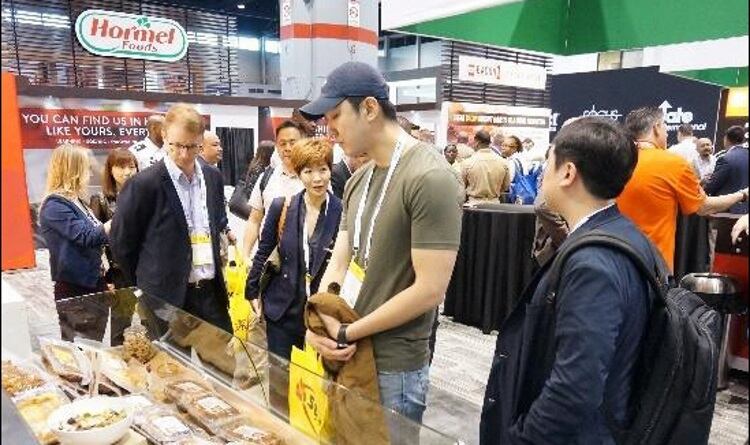Organised by the US Meat Export Federation (USMEF) and funded by the National Pork Board, the delegation consisted of purchasing managers, product developers and executives from some of Korea’s largest food and hotel chains.
The delegates had tours of Johnsonville, OSI/Rose Packing Co. and Hormel Foods to witness how US processed pork products are made, taking in the retail and foodservice side of the industry.
Jihae Yang, USMEF director in Korea, said the delegates were interested in the food safety side of the sector.
“With the processed meat market getting bigger and bigger in Korea, the food safety aspect of our program meant a lot,” she said. “Confidence in this area will help with the expansion of the market.
Lifestyle changes and a growing desire for convenience food has meant that demand for processed meat has increased in Korea in recent years. Minimum wage increases and a 52-hour work system have changed the foodservice industry and USMEF has identified opportunities for pre-cooked bacon, pulled pork, smoked pork items and sausages. Processed pork products imported from the US have the largest market share, said Yang, who noted that US pork is also on the rise as the raw material in Korean-made processed pork products
“There is a growing interest by Korean consumers in processed meat items that are pre-cooked and can be served easily and quickly,” Yang said. “In response to this trend, USMEF has introduced and promoted a wider range of US processed pork items, providing both the food service industry and consumers with up-to-date information and new ideas for products that fit into this convenience trend.”
The delegation also experienced a USMEF pork foodservice seminar and a visit to the National Restaurant Association Show to give a rounded view of the pork sector.
“These professionals were able to broaden their overall understanding of processed pork in America – from production to the various products that are available – and learn about trends that can be applied back home at their businesses,” added Yang.


